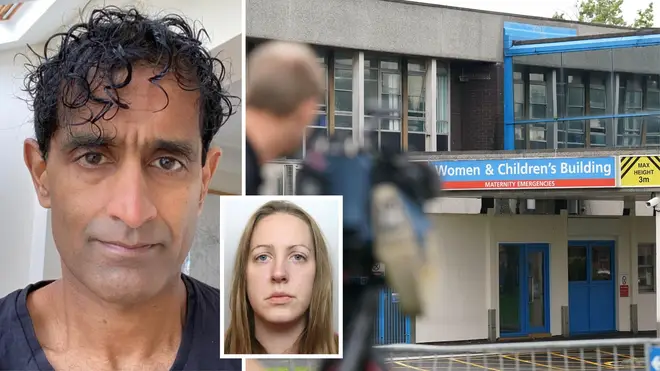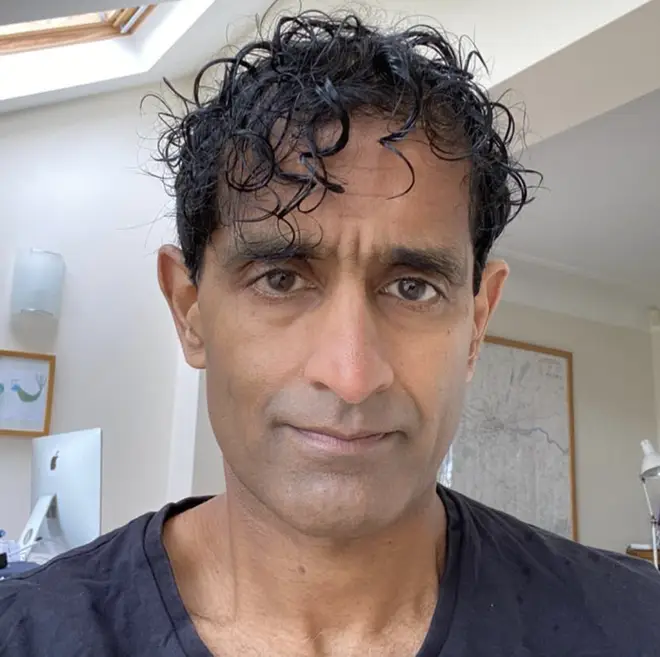
Tom Swarbrick 4pm - 6pm
18 March 2024, 10:16 | Updated: 18 March 2024, 10:22

A neonatal doctor who helped catch Britain’s most prolific child killer Lucy Letby has spoken of his frustrations of the ‘cover-up’ culture that can still exist within the NHS.
Dr Ravi Jayaram, a consultant who was clinical lead for neonates and paediatrics at the hospital where Letby murdered seven babies and attempted to murder six more, told LBC this morning of the ‘depressing’ nature of whistleblowing problems in the NHS.
Dr Jayaram is among a number of medics who raised concerns about Lucy Letby with senior staff at the Countess of Chester hospital. Police were not contacted for two years after doctors first flagged Letby’s association with the increase in baby collapses in June 2015.
Dr Jayaram has now spoken to LBC about how senior managers can have a ‘contempt’ for the views of those on the front lines in healthcare.
Read more: 'This is trivia': Kemi Badenoch hits out at continued furore over Tory donor 'racism' row

Nick Ferrari speaks to Dr Ravi Jayram on NHS 'cover up concerns'
Dr Jayaram told Nick Ferrari this morning: "It’s very depressing,. These things have been happening for years.
“ ‘Lessons are learned’ is the statement that comes out - but then it all goes away and nobody ever checks,” he said.
“In healthcare, we are human beings doing it, unfortunately we are flawed individuals, things will go wrong but we need to learn from them.
“We can only learn from them if we acknowledge things have actually happened.
“Time and time again what happens,… the reaction rather than embracing the fact that you have got members of staff who feel safe enough to raise concerns, the reaction is ‘that can’t get out’ because it will make us look bad.

“You can’t hide stuff any more. It’s going to get out anyway. If something bad is happening you need to do something about it. You can’t just pretend it goes away, this is healthcare.
“There is a culture at senior NHS management level where a lot of people hold in contempt the views of the people at the front line and they don’t listen.
“The culture is ‘that can’t get out - you be quiet’.
“Eventually what happens is the person raising concerns becomes the problem themselves,” he said.
His comments come after warnings from the NHS ombudsman that hospitals are still burying evidence about poor care in a “cover-up culture.”
NHS leaders and hospital boards are doing too little to end the health service’s deeply ingrained “cover-up culture” and victimisation of staff who turn whistleblower, according to the ombudsman for England.
Rob Behrens claimed many parts of the NHS still put “reputation management” ahead of being open with relatives who have lost a loved one due to medical negligence.
He told The Guardian that although the NHS was staffed by “brilliant people” working under intense pressures, too often his investigations into patients’ complaints had revealed cover-ups, “including the altering of care plans and the disappearance of crucial documents after patients have died and robust denial in the face of documentary evidence”.
He said hospitals display a recurring pattern of intimidating whistleblowers rather than taking their concerns seriously.
He cited University Hospitals Birmingham trust for referring 26 of its medics over 10 years for alleged misconduct to the General Medical Council, which regulates doctors, in an apparent attempt to punish them for raising concerns. None were found to have committed any wrongdoing.
A Department of Health and Social Care spokesperson said: “The safety of all patients is of vital importance, and we have made significant improvements to strengthen protections for patients including publishing the first NHS patient safety strategy.
“We are determined to make the health service faster, simpler and fairer. We are putting record levels of investment into the NHS, and training and retaining staff through the long-term workforce plan to properly resource our NHS for decades to come.”